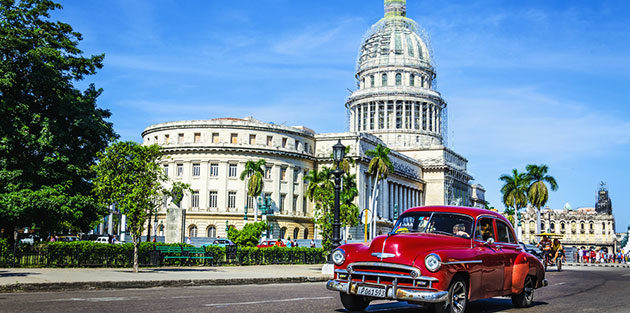Mojitos in Havana?
Free movement of people and products will help liberate Cuba by ROBERT RAMSEY:
“This entire policy shift … is based on an illusion, on a lie — the lie and illusion that more commerce, more access to money and goods will translate to political freedom for the Cuban people.” — Senator Marco Rubio (R-FL)
I don’t know as much about Cuba as Senator Rubio does. I am sure that his hatred of the Castro regime there is justified; in their attempts to produce a perfect and harmonious society in Cuba, they have perpetrated countless crimes against humanity — and against members of his own family. Indeed, I would consider him to be an expert on the sentiments of those opposed to Castro’s regime and its policies. But he is wrong in his belief that trade of any kind will simply result in the Castro regime becoming stronger and more entrenched.
Our current policy towards Cuba is this: cut them off completely on their island, don’t let them have any imports, and wait for the Castros to die. Then, hopefully, the Cuban citizens will rise up against their communist overlords, see that we Americans have Duck Dynasty and Taco Bell, then beg for us to come set up a government for them, or something along those lines.
We’ve been doing this for decades. There is no evidence whatsoever that this policy is working. However, there are quite a few examples of anti-US countries catching the capitalist bug and mellowing their position considerably, as well as beginning to protect human rights. The greatest example is probably Vietnam.
Life in Vietnam in the decade following the Vietnam War was, by all accounts, horrifying. It’s a classic tale of a communist regime killing hundreds of thousands of its own citizens in an attempt to make a perfect society. Millions were displaced, and innumerable others died at sea attempting to flee in makeshift rafts. By 1986, however, the original leaders of the regime had either died or been replaced by reformers who instituted a policy of Doi Moi (open door), which slowly began to introduce reforms friendly to markets. The results have been astounding.
A picture of modern Vietnam: consistent GDP growth of around 5.5 percent for the past decade (unlike many of its neighbors, whose growth bounces up and down with every year); unemployment around 2 percent; low inflation; and a rapidly growing financial sector. As of 2007, Vietnam is a member of the World Trade Organization, and entrepreneurs have become one of the most powerful forces within the country. Quality of life has increased dramatically, and all the trappings of a modern economy can be found throughout most of the country.
Relations with the United States have improved dramatically as well: the United States is its primary trading partner. Tourism has exploded: last year Vietnam saw 6.8 million visitors, and that number shows no signs of shrinking.
Civil rights have developed to a degree, and while the country is still run much as China is, with a single socialist party and the danger of being arrested if one speaks out too much, gone are the days of mass executions. Progress in this area is thus slow, but it’s steady.
There’s no guarantee the same thing will happen in Cuba, but a little capitalism goes a long way. It won’t be long before American tourists flock to Cuba; it’s an hour’s flight from Miami and has been recognized by Americans for well over a century now as an island destination.
Fat American tourists bring fat American wallets, and whether the Castros like it or not, a thriving economy will spring up around tourism. Even if US policy liberalization stops with ending the ban on travel — even, that is, if the foolish embargo isn’t about to be lifted — change will come to Cuba. And a freer market is going to bring it.

ABOUT ROBERT RAMSEY
Robert Ramsey is the website curator at FEE. He loves cooking, writing, and hacking in his spare time.


